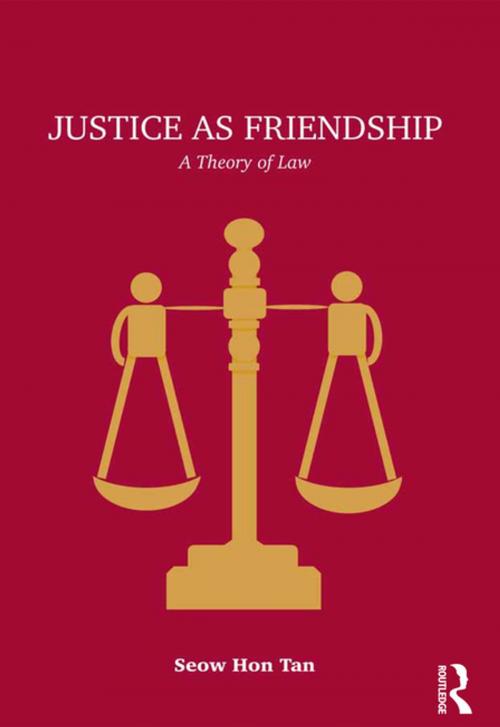Justice as Friendship
A Theory of Law
Nonfiction, Reference & Language, Law, Comparative, Jurisprudence| Author: | Seow Hon Tan | ISBN: | 9781317109778 |
| Publisher: | Taylor and Francis | Publication: | March 9, 2016 |
| Imprint: | Routledge | Language: | English |
| Author: | Seow Hon Tan |
| ISBN: | 9781317109778 |
| Publisher: | Taylor and Francis |
| Publication: | March 9, 2016 |
| Imprint: | Routledge |
| Language: | English |
This book explores the question of justification of law. It examines some perennial jurisprudential debates and suggests that law must find its justification in morality. Drawing upon the Aristotelian inspiration that friends have no need for justice - in (ideal) friendship, we behave justly - Seow Hon Tan develops a theory of law based on the universal phenomenon of friendship. Friendships and legal relations attract rights and obligations by virtue of the manner in which parties are situated. Friendship teaches us that how parties are situated gives rise to legitimate expectations; it attests to the intrinsic worth of each person. The methodology for deciphering norms within, and moral lessons from, friendship can be transposed to law, resulting in an inter-subjectively agreeable and rich conception of justice. In determining the content of legal rights and obligations, we can and should draw upon such determination in friendship. Justice as Friendship aims to provide a vision for law’s development and invites the practitioner to advance its central claims in their area of expertise. In dealing with selected legal doctrines, the book draws upon illustrative cases from the United States, the United Kingdom, and the Commonwealth. The book traverses the fields of jurisprudence, philosophy, ethics, political theory, contract law, and tort law.
This book explores the question of justification of law. It examines some perennial jurisprudential debates and suggests that law must find its justification in morality. Drawing upon the Aristotelian inspiration that friends have no need for justice - in (ideal) friendship, we behave justly - Seow Hon Tan develops a theory of law based on the universal phenomenon of friendship. Friendships and legal relations attract rights and obligations by virtue of the manner in which parties are situated. Friendship teaches us that how parties are situated gives rise to legitimate expectations; it attests to the intrinsic worth of each person. The methodology for deciphering norms within, and moral lessons from, friendship can be transposed to law, resulting in an inter-subjectively agreeable and rich conception of justice. In determining the content of legal rights and obligations, we can and should draw upon such determination in friendship. Justice as Friendship aims to provide a vision for law’s development and invites the practitioner to advance its central claims in their area of expertise. In dealing with selected legal doctrines, the book draws upon illustrative cases from the United States, the United Kingdom, and the Commonwealth. The book traverses the fields of jurisprudence, philosophy, ethics, political theory, contract law, and tort law.















